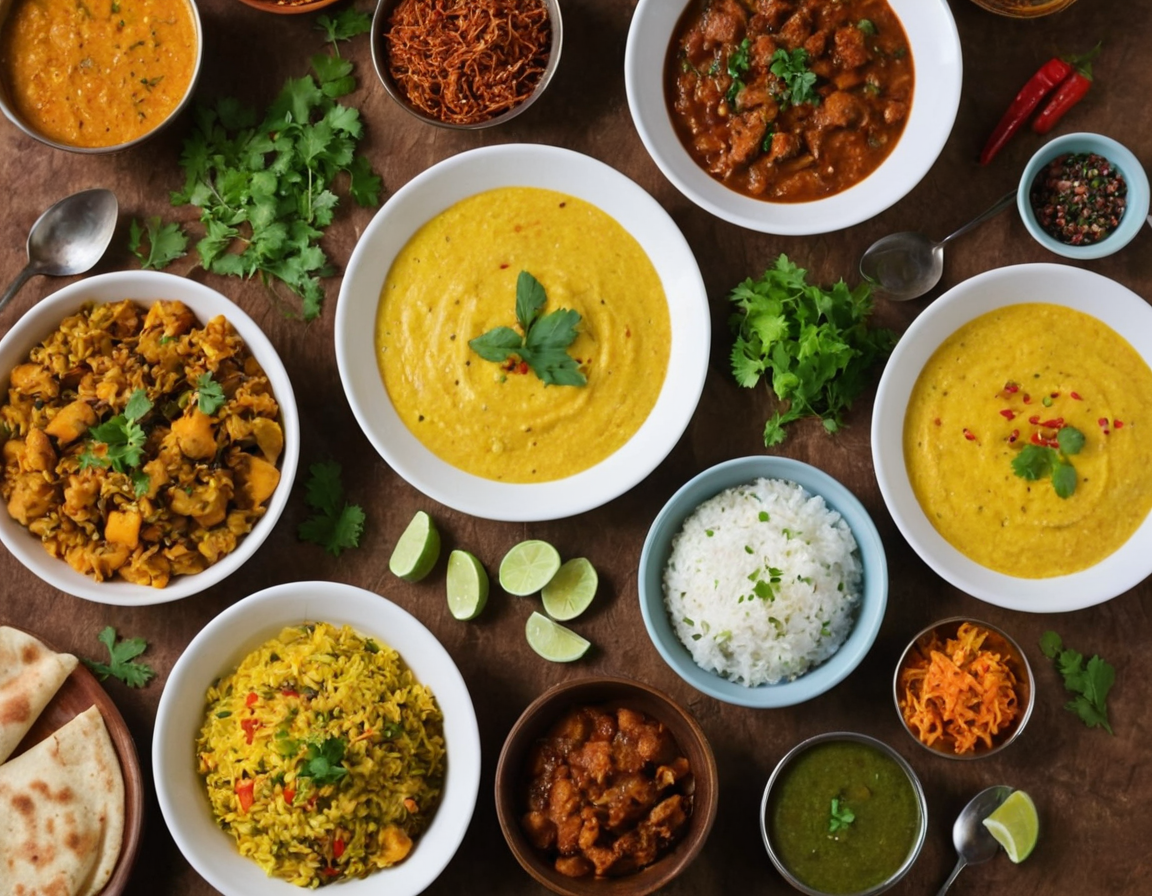Breakfast is a crucial meal for those managing PCOS. Skipping breakfast can lead to various health issues, including migraines, diabetes, low energy, and increased PCOS symptoms. Studies show that women consuming a wholesome breakfast and smaller dinners can balance hormones associated with PCOS. Here are some PCOS-friendly Indian breakfast ideas.
Table of contents
Nutritional Strategy for PCOS
To manage PCOS effectively, it is essential to follow a balanced and sustainable diet. Avoid FAD diets and focus on unprocessed complex carbohydrates, proteins, essential fatty acids, micronutrients, and probiotics. Consult a qualified nutritionist or dietitian for a personalized meal plan.
Breakfast Ideas for PCOS
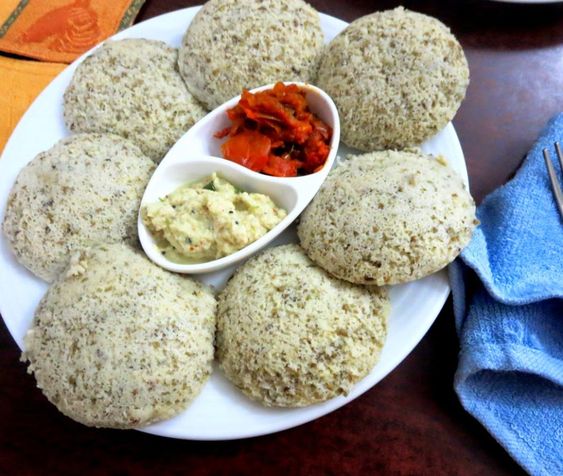
Sprouted Moong Dal Idly
Health Benefits: Sprouted Moong Dal Idly is easy to prepare and digest. The sprouting process increases the bioavailability of nutrients, which is beneficial for improving gut health and managing insulin levels.
Method:
- Soak whole green gram (moong dal) overnight and allow it to sprout for a day or two.
- Grind the sprouted moong dal with a small amount of rice to make a batter.
- Let the batter ferment for a few hours.
- Pour into idly molds and steam for 10-12 minutes.
Healthy Twist: Add finely chopped vegetables like carrots, spinach, or bell peppers into the batter before steaming. Serve with a chutney made from flaxseeds or sesame seeds to boost omega-3 intake.
Also read more about 12 Indian Breakfast Foods That Are Vegan And High In Protein.
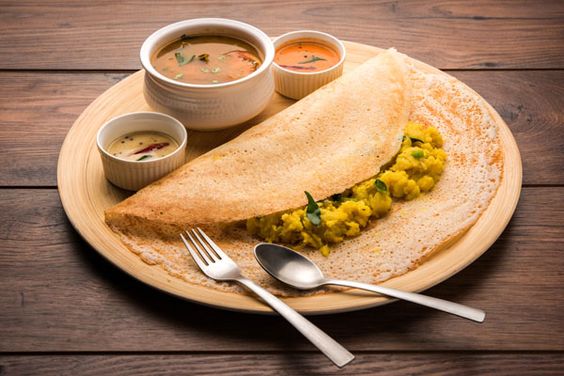
Ragi (Finger Millet) Dosa
Health Benefits: Ragi is rich in calcium and iron, making it an excellent choice for bone health and anemia management. Its low glycemic index helps maintain stable blood sugar levels.
Method:
- Soak ragi and urad dal separately for 4-6 hours.
- Grind both into a smooth batter and let it ferment overnight.
- Spread the batter thinly on a hot pan to make crispy dosas.
Healthy Twist: Incorporate finely chopped methi (fenugreek) leaves into the batter for added fiber and nutrients. Serve with a chutney made from coconut and coriander.
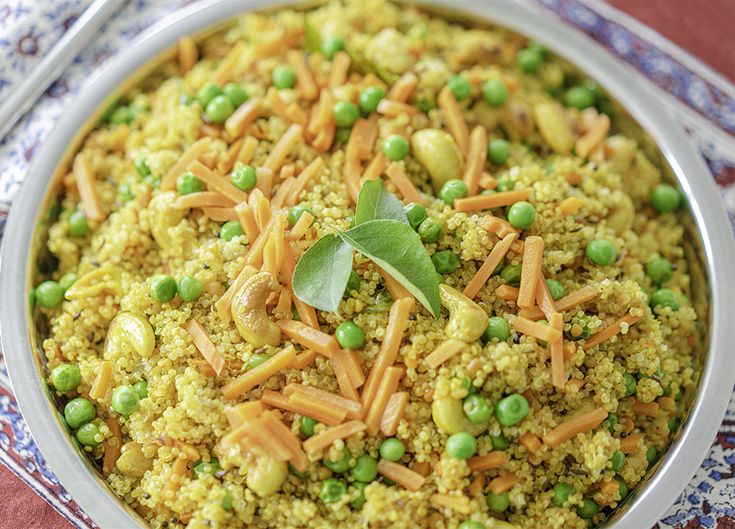
Quinoa Upma
Health Benefits: Quinoa is a complete protein and is high in fiber, which helps in weight management and maintaining healthy blood sugar levels.
Method:
- Rinse quinoa thoroughly and cook in water until soft.
- Sauté mustard seeds, curry leaves, onions, and assorted vegetables.
- Add the cooked quinoa and mix well.
Healthy Twist: Add a handful of roasted nuts and seeds like almonds, walnuts, and sunflower seeds for added crunch and nutrition. Garnish with fresh coriander and a squeeze of lemon juice.
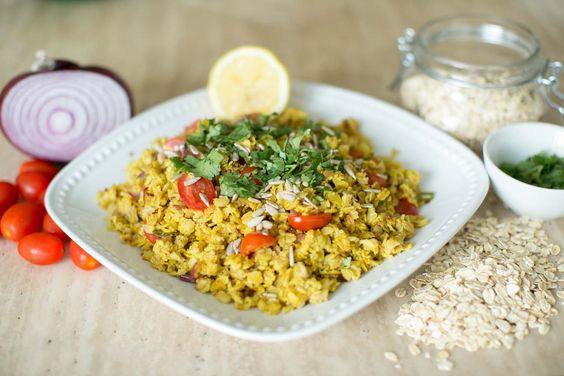
Oats Poha
Health Benefits: Oats are high in soluble fiber, which can help lower cholesterol levels and improve heart health. They also provide sustained energy due to their low glycemic index.
Method:
- Rinse oats and drain.
- Sauté mustard seeds, curry leaves, onions, and peanuts.
- Add the oats and cook for a few minutes.
Healthy Twist: Use steel-cut oats for a chewier texture and higher fiber content. Add vegetables like peas, carrots, and tomatoes to enhance the nutritional profile.
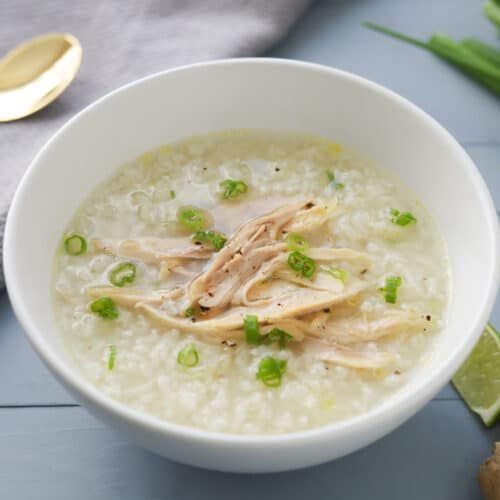
Bajra (Pearl Millet) Porridge
Health Benefits: Bajra is gluten-free and rich in magnesium, which helps in managing insulin resistance, a common issue in PCOS.
Method:
- Roast bajra flour lightly.
- Cook the flour in water or milk until it thickens.
- Add a pinch of salt and spices like cardamom or cinnamon.
Healthy Twist: Sweeten with natural sweeteners like jaggery or honey. Top with fresh fruits like berries or apples for added vitamins and fiber.
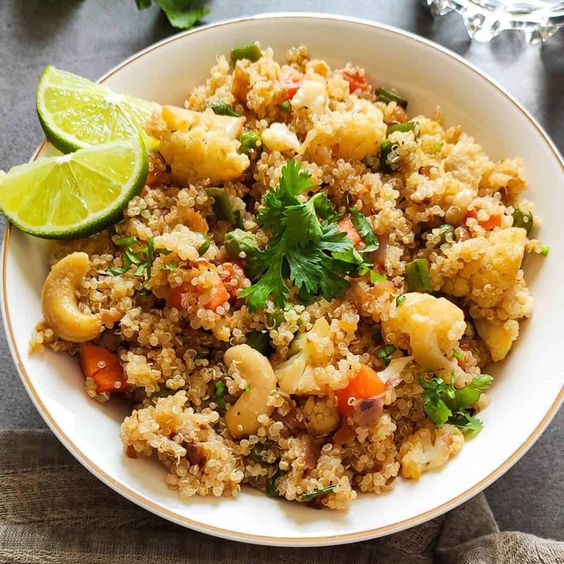
Vegetable Quinoa Pulao
Health Benefits: Quinoa is packed with protein and essential amino acids, which are beneficial for muscle repair and overall health.
Method:
- Cook quinoa in water until fluffy.
- Sauté cumin seeds, onions, and a mix of vegetables like bell peppers, beans, and carrots.
- Mix in the cooked quinoa and season with spices like turmeric, cumin, and coriander powder.
Healthy Twist: Add a handful of fresh greens like spinach or kale at the end of cooking for an extra nutrient boost. Serve with a side of probiotic-rich raita.
Also read Top 5 South Indian Food Recipes For Pregnant Ladies.
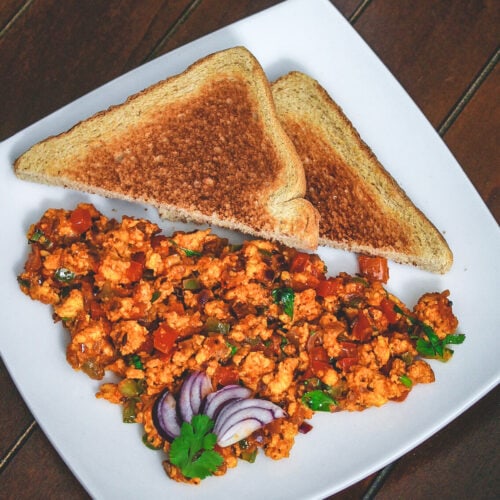
Paneer Bhurji with Multigrain Toast
Health Benefits: Paneer provides a good source of protein and calcium, which are essential for bone health and muscle maintenance.
Method:
- Crumble paneer and sauté with onions, tomatoes, and spices like turmeric, cumin, and coriander.
- Cook until the paneer is well-mixed and heated through.
Healthy Twist: Serve with multigrain toast for a fiber-rich meal. Add finely chopped vegetables like bell peppers, spinach, and tomatoes into the bhurji for added nutrients.
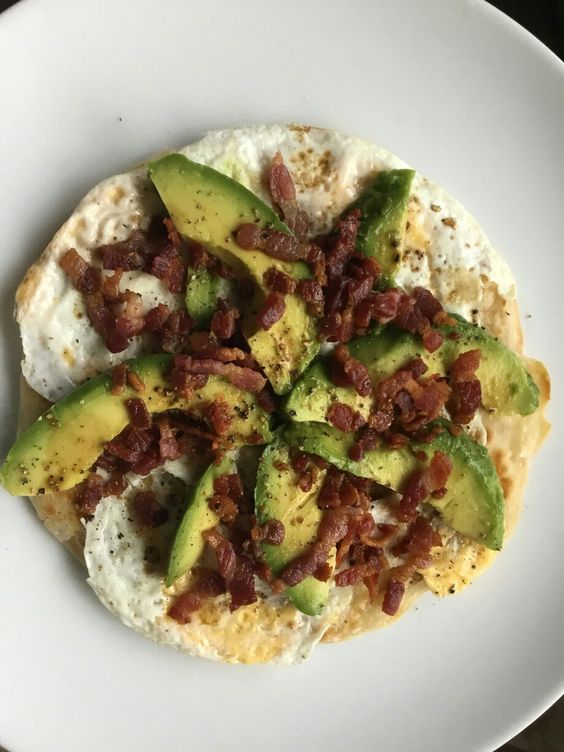
Avocado and Egg Stuffed Paratha
Health Benefits: Avocado is rich in healthy fats and fiber, while eggs provide high-quality protein and essential vitamins.
Method:
- Prepare whole wheat dough and roll into flatbreads.
- Mash avocado and mix with boiled, chopped eggs, salt, pepper, and lemon juice.
- Stuff the mixture into the flatbreads and cook on a hot pan until golden brown.
Healthy Twist: Use whole grain or multigrain flour for the paratha dough. Add a side of fresh salad or yogurt for a balanced meal.
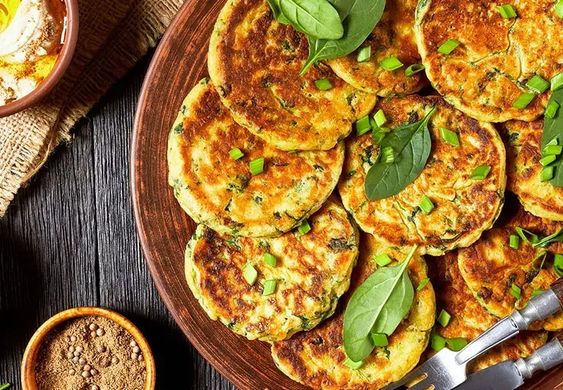
Chickpea and Spinach Pancakes
Health Benefits: Chickpeas are an excellent source of plant-based protein and fiber, which help in maintaining satiety and managing blood sugar levels.
Method:
- Soak chickpeas overnight and grind into a batter with spices like cumin, coriander, and turmeric.
- Add finely chopped spinach to the batter.
- Pour the batter onto a hot pan and cook until golden brown on both sides.
Healthy Twist: Serve with a yogurt dip or mint chutney. Add grated vegetables like carrots or zucchini to the batter for extra nutrition.
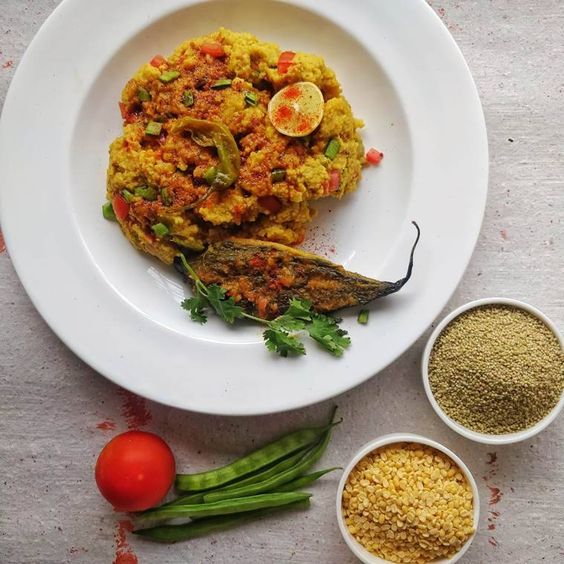
Millet and Lentil Porridge
Health Benefits: Millet and lentils are rich in protein, fiber, and essential vitamins and minerals, making this porridge a nutrient-dense breakfast option.
Method:
- Cook a mix of millets and lentils in water until soft.
- Add spices like cumin, coriander, and turmeric for flavor.
- Stir in vegetables like carrots, peas, and spinach.
Healthy Twist: Top with a drizzle of ghee or coconut oil for healthy fats. Serve with a side of probiotic-rich pickles or chutney.
For a balanced PCOS-friendly diet, focus on local, seasonal, and culturally appropriate breakfast options, and include a variety of food groups in every meal. Avoid processed, packaged, and refined foods, and maintain regular exercise and good hydration for overall health.
